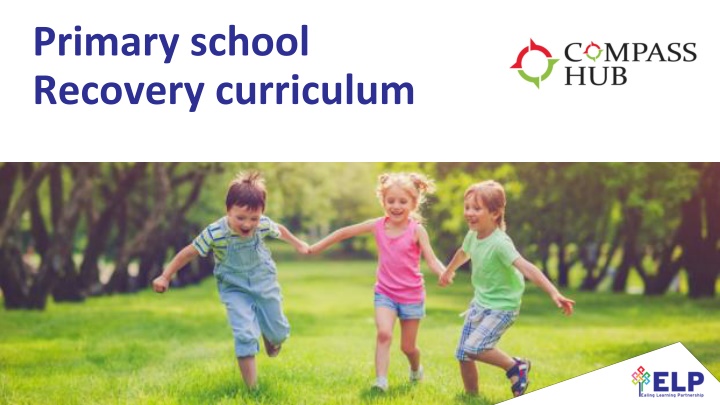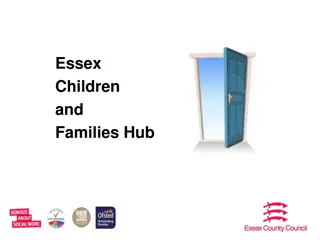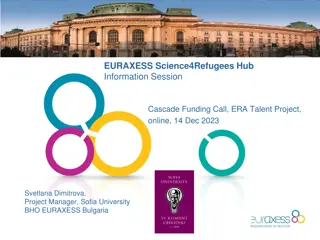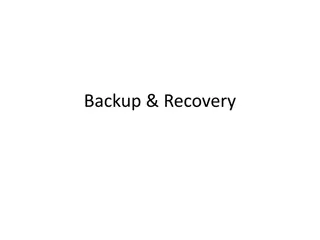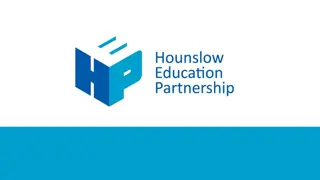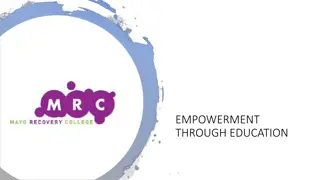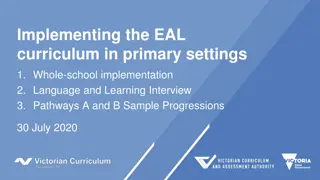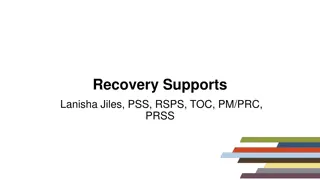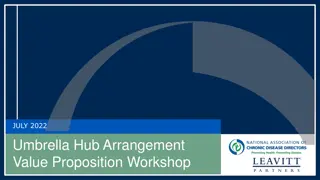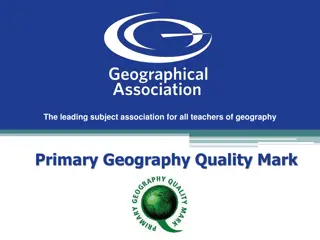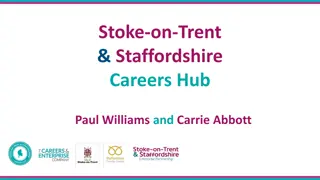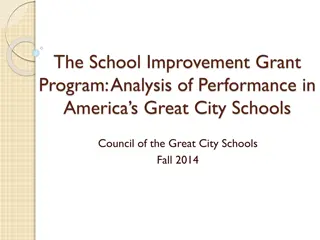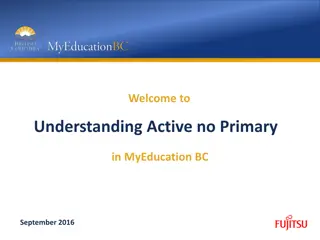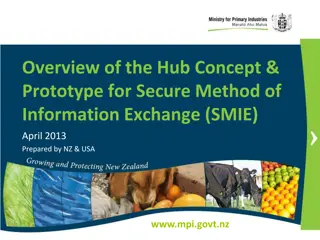Primary School Recovery Curriculum by Compass Hub Schools
The recovery curriculum, developed by Compass Hub schools in collaboration with the Ealing health improvement team, aims to address the struggles young students may face upon returning to school post-pandemic. Highlighting the need for children to 'recover' before engaging with catch-up programs, the curriculum addresses challenges like anxiety, lack of structure, and social skill deficits. It emphasizes the vulnerability of children during this time and the importance of supporting their mental health in the face of adult anxiety, trauma, and bereavement. Drawing on evidence from past traumatic events, the curriculum underscores the significant impact on children's development and learning.
Download Presentation

Please find below an Image/Link to download the presentation.
The content on the website is provided AS IS for your information and personal use only. It may not be sold, licensed, or shared on other websites without obtaining consent from the author.If you encounter any issues during the download, it is possible that the publisher has removed the file from their server.
You are allowed to download the files provided on this website for personal or commercial use, subject to the condition that they are used lawfully. All files are the property of their respective owners.
The content on the website is provided AS IS for your information and personal use only. It may not be sold, licensed, or shared on other websites without obtaining consent from the author.
E N D
Presentation Transcript
Primary school Recovery curriculum
The recovery curriculum was developed by the Compass Hub schools with the support of the Ealing health improvement team. The schools involved in the development of this curriculum were: Belmore Primary School, Hillingdon, William Byrd Primary School, Hillingdon, Colham Manor Primary School, Hillingdon, Weald Rise Primary School, Harrow, Costons Primary Primary School, Ealing, Ravenor Primary School, Ealing, Hamborough Primary School Primary, Ealing, North Primary School, Ealing
Recovery curriculum The development of the recovery curriculum was based on a think piece written by Professor Barry Carpenter and Matthew Carpenter. Their piece highlighted the need for children to have the opportunity to 'recover' before engaging with catch up programmes. They stated that It would be naive to think that a child will pick up the curriculum at exactly the same point at which they left it on the day their school closed.
Recovery curriculum Their piece highlighted the many struggles young people would face on transitioning back to school. They state that many children may struggle with: - Anxiety about leaving home - Anxiety about loved ones - Lack of understanding about what has happened - Loss of structure - Familial illness/death - Struggle to reintegrate with peers - Lack of social skills - Fear to be with other people again - Anxiety about missed work
Recovery curriculum They also state that children are particularly vulnerable at this time, and their mental-health fragile. And on top of that, they are witnessing a sea of adult anxiety. Anxiety, trauma and bereavement are powerful forces. For these 3 forces to appear all at once in an untimely and unplanned fashion is significant for the developing child.
Recovery curriculum evidence Research shows that traumatic events have a great impact on children's development For example, after the earthquakes in Christchurch New Zealand, schools kept a register of the deaths within a family, or other significant traumatic events, to guide and inform staff as children returned. Subsequent evidence from research studies from NZ, (Liberty, 2018) have shown that there has been considerable impact on the learning and development of those children who were under 5 years old at the time of the earthquakes, (e.g. speech delays, emotional immaturity, etc).
Recovery curriculum evidence The 5 losses (routine, structure, friendship, opportunity and freedom) can trigger the emergence emotionally of anxiety, trauma and bereavement in any child. The overall impact cannot be underestimated. It will cause a rapid erosion of the mental health state in our children.
Recovery curriculum development They suggested that schools develop a recovery curriculum that could be used as a systematic, relationships-based approach to reigniting the flame of learning in each child. With this in mind, the compass hub schools began to work together to develop the Recovery Curriculum.
Recovery curriculum format The recovery curriculum should be used by class teachers/member of teaching staff It should be used with pupils as they transition back to school It is not designed to be done as part of home learning.
Recovery curriculum format The recovery curriculum has 5 different themes: Theme 1: Relationships we can t expect our students to return joyfully, and many of the relationships that were thriving, may need to be invested in and restored. We need to plan for this to happen, not assume that it will. Reach out to greet them, use the relationships we build to cushion the discomfort of returning. Theme 2: Community we must recognise that curriculum will have been based in the community for a long period of time. We need to listen to what has happened in this time, understand the needs of our community and engage them in the transitioning of learning back into school.
Recovery curriculum format Theme 3: Transparent Curriculum (resilience) all of our students will feel like they have lost time in learning and we must show them how we are addressing these gaps, consulting and co-constructing with our students to heal this sense of loss. Theme 4: Metacognition in different environments, students will have been learning in different ways. It is vital that we make the skills for learning in a school environment explicit to our students to reskill and rebuild their confidence as learners. Theme 5: Space to be, to rediscover self, and to find their voice on learning in this issue. It is only natural that we all work at an incredible pace to make sure this group of learners are not disadvantaged against their peers, providing opportunity and exploration alongside the intensity of our expectations.
Recovery curriculum lesson plans Each theme is broken into phases (EYFS, KS1, Lower KS2 and Upper KS2) There are a series of suggested activities for each phase for each theme. Schools can progress through each theme however they see fit. Some schools may take a different theme each week, others may work on a different theme each month you will need to do what is best of your school or for each individual classes needs
Recovery curriculum lesson plans The recovery curriculum should not replace your PSHE lessons, it should be done in addition to PSHE. This may mean you have to shorten/reduce PSHE lessons to build in time for the recovery curriculum Schools will need to decide how much time should be dedicated to PSHE and how much time should be dedicated to the recovery curriculum.
Recovery curriculum The recovery curriculum should be seen as your universal offer to all pupils. Some pupils may need additional support (counselling, external agency support, additional sessions) Pupils who need additional support transitioning back to school should be referred to members of SLT.
Find out more: Think piece: https://www.evidenceforlearning.net/recoverycurriculum/ Compass Hub page: https://www.compasshub.net/the- recovery-curriculum EGFL: https://www.egfl.org.uk/elp-services/health- improvement-schools/health-improvement-recovery- curriculum Contact Claire: meadec@ealing.gov.uk
